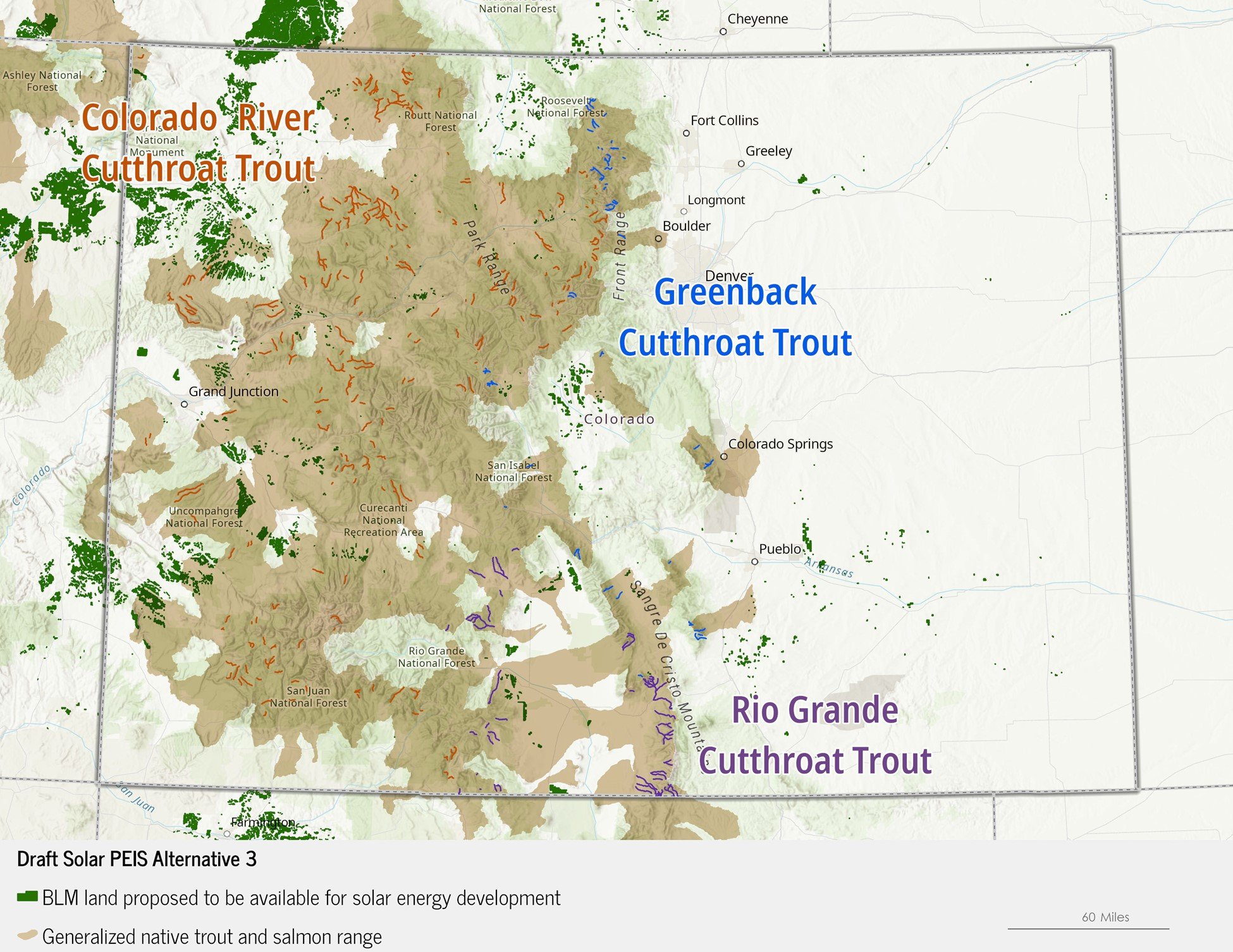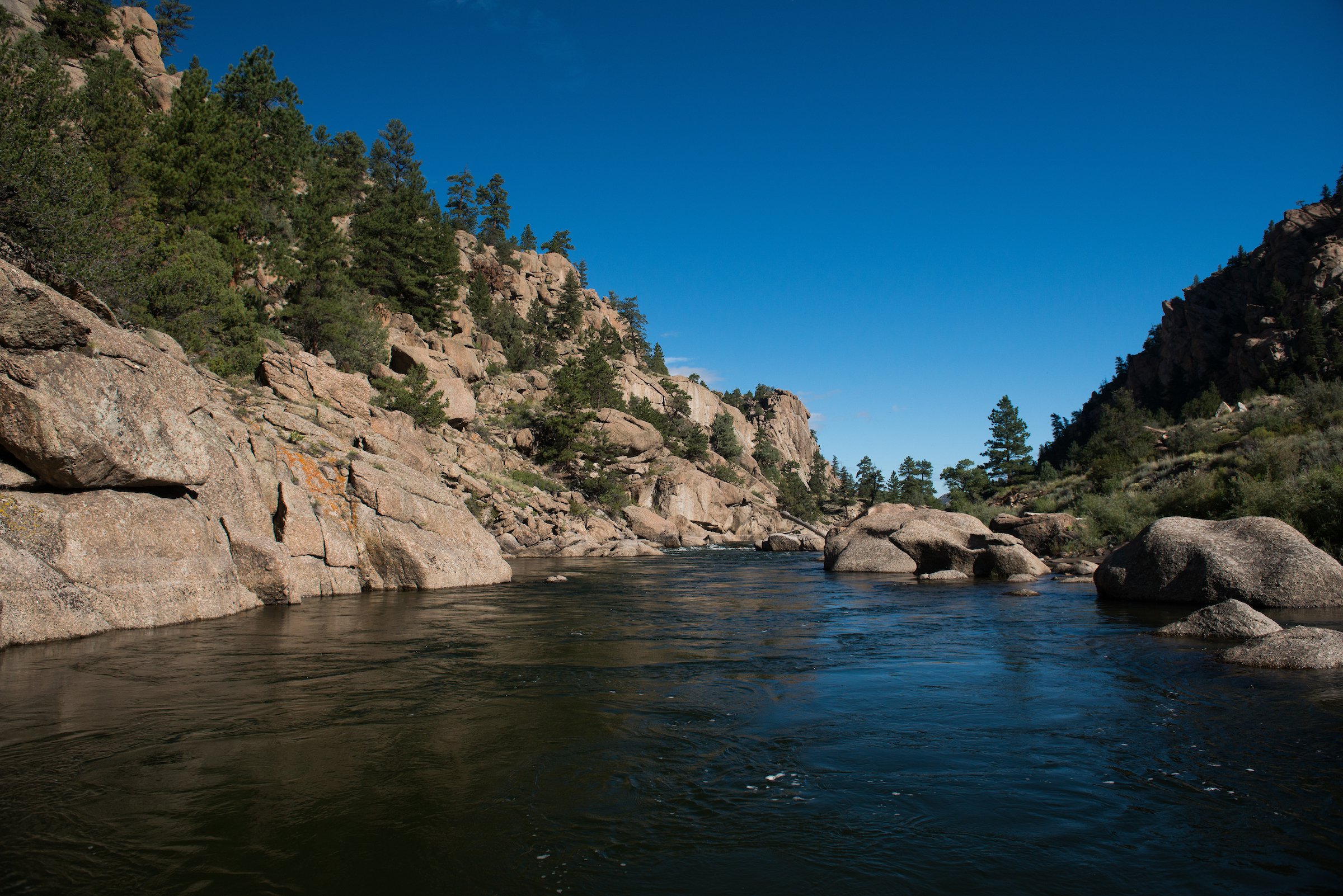The U.S. Bureau of Land Management (BLM) recently released its draft plan for utility-scale solar siting on public lands in the western states. This plan is critical for our country to meet ambitious renewable energy goals, and we are encouraged by BLM taking a programmatic approach to determining which areas are open to development and which are not. However, siting of these projects can have a massive impact on trout habitat and must be done in a thoughtful manner.
Across the West, the draft plan could open up as much as 22 million acres to solar development. Here in Colorado, prospective areas available for project siting could overlap with nearly 117,000 acres of native and wild trout habitat, mostly in the western part of the state, including in the Colorado and Gunnison River basins.
The push for increased renewable energy production on public lands doesn’t need to come at the expense of native and wild trout. It is important for the BLM’s final plan to adopt programmatic level exclusions for trout habitat. In the draft plan, aquatic resources were not included in the BLM’s exclusion criteria.
We get one chance to get this right, and it is essential to balance resource management and conservation needs with new renewable energy demands on public lands. Go to the comment portal to any of the ‘Participate Now’ links and tell the BLM to adopt programmatic level exclusions for native and wild trout habitat in the final western solar plan. You can also submit comments via email at solar@blm.gov.




















